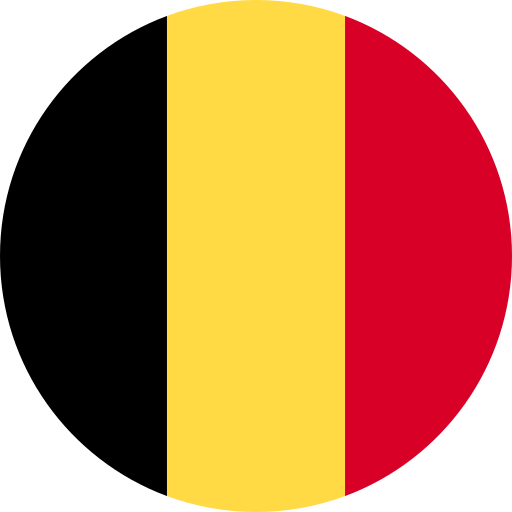Belgium is a fascinating tapestry of cultures and languages, with French playing a significant role in its identity. As one of the country’s three official languages, French isn’t just a means of communication; it shapes social dynamics and regional identities. In regions like Wallonia and parts of Brussels, you’ll find vibrant communities where French is the primary language.
Understanding the landscape of French first language speakers in Belgium reveals much about the nation’s history and cultural evolution. From education to media and politics, the influence of these speakers is profound. Dive into this exploration to uncover how their presence enriches Belgian society and contributes to its unique multilingual character.
Key Takeaways
- Significant Demographic: Approximately 40% of Belgium’s population speaks French as their first language, with major concentrations in Wallonia and Brussels.
- Cultural Influence: French first language speakers enrich Belgian culture through festivals, literature, and arts, particularly evident in the vibrant communities of Wallonia.
- Historical Context: The status of French evolved significantly since the 19th century due to urbanization and industrialization, shaping language dynamics across Belgium.
- Multilingual Trends: Younger generations are increasingly multilingual, blending French with Dutch or English, while older populations predominantly communicate in French.
- Challenges Faced: Political tensions between Francophone and Flemish communities create challenges for resource access and representation for French speakers.
- Arts and Education Impact: French speakers contribute substantially to Belgium’s literary scene and educational curricula, reflecting cultural nuances essential for understanding national identity.
Overview of French First Language Speakers in Belgium
French first language speakers play a vital role in Belgium’s linguistic landscape. Approximately 40% of the Belgian population speaks French as their primary language, with significant concentrations found in Wallonia and Brussels. This demographic influences various sectors, including education, media, and politics.
In Wallonia, French serves as the main language for daily communication and official matters. The region showcases a rich cultural heritage that reflects its Francophone identity through festivals, literature, and art. In Brussels, which is officially bilingual (Dutch and French), the presence of French speakers shapes the city’s multicultural environment.
The influence of French first language speakers extends into voiceover work. Many voice artists in this community provide essential services across various industries such as advertising, entertainment, and corporate communications. Their unique accents and cultural insights enhance projects aimed at Francophone audiences.
Overall, understanding the contributions of French first language speakers fosters appreciation for Belgium’s diverse society and opens avenues for collaboration across creative fields like voice talent production.
Historical Context
The historical context of French first language speakers in Belgium reflects the intricate relationship between language, culture, and identity. Understanding this background enhances your appreciation for the diverse contributions of French speakers to Belgian society.
Evolution of Language in Belgium
Language evolution in Belgium traces back to various influences, including regional dialects and neighboring countries. From the 19th century onward, industrialization sparked a shift toward urbanization where French became increasingly dominant, particularly in Wallonia. This transition established French as a vital medium for communication and education. The establishment of language laws in the late 20th century further solidified its status alongside Dutch and German, ensuring that French remained integral to public life, media, and arts.
Key Regions with French Influence
Key regions with significant French influence include Wallonia and Brussels.
- Wallonia: Predominantly Francophone, Wallonia showcases rich cultural traditions through festivals, literature, and art forms that highlight the region’s heritage.
- Brussels: As a bilingual city with a strong presence of both French and Dutch speakers, Brussels exemplifies multiculturalism. The blend of languages contributes to vibrant arts scenes where voice artists often draw upon local nuances.
Recognizing these regions’ linguistic dynamics aids clients seeking voiceover talent who can embody authentic Belgian accents or resonate with culturally specific themes relevant to their projects.
Demographics of French First Language Speakers
French first language speakers are a significant demographic in Belgium, making up approximately 40% of the population. This group primarily resides in Wallonia and Brussels, where French serves as the dominant language for communication and official matters.
Population Statistics
In total, around 4.5 million individuals in Belgium speak French as their first language. The majority reside in Wallonia, which accounts for about 3.6 million speakers, while Brussels hosts roughly 1 million French speakers. The linguistic diversity within these regions contributes to a unique cultural landscape that influences various sectors including media and education.
| Region | Estimated French Speakers |
|---|---|
| Wallonia | 3.6 million |
| Brussels | 1 million |
Age Distribution and Trends
The age distribution among French first language speakers reflects changing demographics over time. Younger generations increasingly embrace multilingualism, often speaking both French and Dutch or English fluently. However, older populations predominantly communicate in French only.
- Children (0-14 years): Approximately 20% of French speakers fall into this category.
- Youth (15-24 years): About 15% represent this age group.
- Adults (25-54 years): Roughly 50% belong to this demographic.
- Seniors (55+ years): Nearly 15% are aged seniors.
These trends highlight the importance of understanding audience preferences across age groups when creating content tailored for voiceover projects aimed at Francophone audiences.
Cultural Significance
The French language holds deep cultural significance in Belgium, influencing various aspects of society and identity.
Contributions to Belgian Identity
French first language speakers play a crucial role in shaping Belgium’s national identity. They contribute to the rich tapestry of regional cultures, particularly in Wallonia and Brussels. In Wallonia, local festivals celebrate traditions that highlight the unique heritage of French speakers, fostering community ties. In Brussels, bilingualism promotes cultural exchange, enhancing the city’s status as an international hub. Together, these contributions establish a sense of belonging among French-speaking populations while reinforcing their importance within Belgium’s multilingual framework.
Influence on Arts and Education
French first language speakers significantly influence Belgium’s arts and education sectors. The literary scene thrives with works from renowned Francophone authors who explore themes relevant to Belgian society. These narratives enrich educational curricula and promote critical thinking among students. Additionally, artistic expressions found in theater, film, and music often incorporate the distinct voices of French artists. Their storytelling not only entertains but also reflects cultural nuances essential for understanding Belgian identity.
In voiceover projects targeting Francophone audiences, insights from these artists enhance productions by providing authentic representation. Their linguistic proficiency ensures clarity and emotional resonance in voiceovers aimed at diverse demographics across all age groups. By valuing this influence on arts and education, you engage with a vibrant community enriched by its cultural heritage.
Challenges Faced by French First Language Speakers
French first language speakers in Belgium encounter several challenges that affect their daily lives and professional opportunities.
Political and Linguistic Tensions
Political and linguistic tensions persist between Francophones and Flemish communities. The division between Dutch-speaking Flanders and French-speaking Wallonia often leads to disputes over language policies, representation, and resource allocation. These tensions can create a sense of marginalization for French speakers in certain regions, impacting their access to political power and social services. For instance, language laws may limit the use of French in official documents or public institutions outside predominantly French-speaking areas. Such restrictions hinder effective communication for those relying on French as their primary language.
Access to Resources and Services
Access to resources and services poses additional challenges for French first language speakers. Many educational institutions offer limited instruction in French outside major urban centers like Brussels. Consequently, students seeking quality education may face difficulties accessing programs that align with their linguistic needs. Additionally, healthcare facilities may not always provide adequate translation services, complicating interactions for patients who prefer communicating in French. This gap in resources affects overall well-being for many individuals within the Francophone community.
Understanding these challenges is vital when considering projects aimed at engaging with the Belgian market or creating content intended for a Francophone audience. Ensuring inclusivity can enhance your message’s resonance through appropriate localization strategies.
Conclusion
Embracing the richness of French first language speakers in Belgium allows you to appreciate their profound impact on the country’s culture and identity. As they navigate a landscape filled with historical complexities and modern challenges, their contributions enhance various sectors including education and the arts.
Recognizing their role not only fosters inclusivity but also opens doors for collaboration across different fields. Whether you’re creating content or engaging with this vibrant community, understanding their unique perspectives is essential for building meaningful connections. This appreciation paves the way for a more harmonious coexistence in Belgium’s multilingual society.
Frequently Asked Questions
What is the significance of the French language in Belgium?
The French language is one of Belgium’s three official languages and plays a crucial role in shaping social dynamics, particularly in Wallonia and Brussels. About 40% of Belgians speak French as their first language, influencing culture, education, and politics.
How many people in Belgium speak French as their first language?
Approximately 4.5 million individuals in Belgium speak French as their first language. This includes around 3.6 million in Wallonia and roughly 1 million in Brussels.
What cultural contributions do French speakers make to Belgium?
French speakers enrich Belgian culture through literature, festivals, and the arts. Their storytelling reflects local traditions and fosters community ties, enhancing national identity.
How has industrialization affected the French language in Belgium?
Industrialization in the 19th century led to urbanization, establishing French as the dominant communication medium. Language laws later reinforced its importance in education and daily life throughout regions like Wallonia.
What challenges do French speakers face in Belgium?
French speakers encounter political tensions with Flemish communities over language policies and resource allocation. Access to education and healthcare can also be challenging outside major cities like Brussels.
How does multilingualism impact younger generations of French speakers?
Younger generations of French speakers are more inclined toward multilingualism, reflecting changing demographics that influence content creation for voiceover projects aimed at Francophone audiences.
Why is understanding regional identities important for content creators?
Recognizing regional identities helps content creators tailor their work for diverse audiences. Understanding cultural nuances ensures authenticity and emotional resonance when producing media for Francophone viewers.
What role do festivals play for the Francophone community in Wallonia?
Festivals celebrate local heritage among Francophones in Wallonia, fostering community bonds while showcasing cultural expressions through music, food, art, and literature that highlight regional pride.
How does bilingualism manifest itself in Brussels?
Brussels is characterized by bilingualism due to its significant number of both French-speaking and Dutch-speaking residents. This multicultural environment enhances social interactions across different linguistic groups.
Why are insights from Francophone artists valuable for voiceover projects?
Insights from Francophone artists provide authentic representation essential for connecting with audiences emotionally. Their unique perspectives enhance productions targeting Francophone viewers by ensuring cultural relevance.







